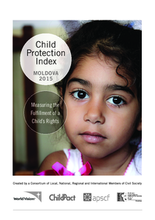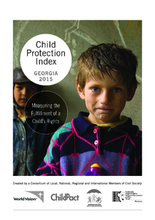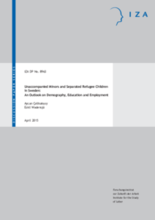Displaying 281 - 290 of 565
The Child Protection Index (the Index) is a comparative policy tool, organised and implemented by local and national level civil society organisations, that examines a country’s current child protection system using a common set of 626 indicators that measure a country’s policy and actions toward greater child protection. This Index measures Moldova’s efforts toward child protection in comparison with other countries in the region.
The Child Protection Index (the Index) is a comparative policy tool, organised and implemented by local and national level civil society organisations, that examines a country’s current child protection system using a common set of 626 indicators that measure a country’s policy and actions toward greater child protection. This Index measures Georgia’s efforts toward child protection in comparison with other countries in the region.
CP MERG hosted a webinar on 27 May 2015 entitled “Evaluating Protection and Psychosocial Support in the Context of Humanitarian Settings” and now the webinar recording and powerpoint presentations are available on the CP MERG website.
This document, developed through a mapping exercise conducted by the National Council for Children’s Services (NCCS) and the Department of Children Services (DCS) of Kenya, provides a comprehensive list of the agencies and programs in Kenya that provide services for children.
In an effort to support practitioners to address some challenges of trying to undertake quality research, a group of child protection networks and organizations - the Community Child Protection Exchange, the CP MERG, the CPC Learning Network, and REPSSI - came together to produce this joint newsletter reflecting upon some groups’ successes and challenges working on child protection research and M&E, including working with a limited budget in low-resource settings.
This presentation was delivered at the Africa-Wide Children Without Appropriate Care Program Learning Event: “Shaping our care reform work across Africa,” held in Ethiopia on 20-23 April 2015. It provides an overview of the Tracking Progress Initiative, which includes the development of a tool to measure country progress in implementing the Guidelines for the Alternative Care of Children.
This report provides a general background to the demographic makeup of the population of unaccompanied minors who have migrated to Sweden, including an examination of their educational and employment characteristics.
The February-March 2015 double edition of the ISS Monthly Review includes an article by Florence Martin, director of the Better Care Network, which provides a brief overview of the Tracking Progress project and potential implications for users of the tool.
This paper combines data on the age distribution of current and projected mortality from Ebola with the fertility distribution of adults in Guinea, Liberia, and Sierra Leone, to estimate the likely impact of the epidemic on the number of orphans in these three countries.
This study aimed to examine the living arrangement of children (both orphan & non-orphan) based on a nationally representative Nepal Demographic and Health Survey (NDHS) 2006 and 2011.



